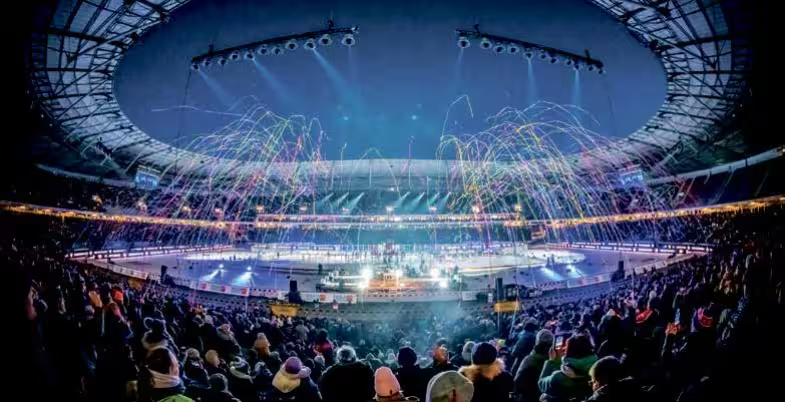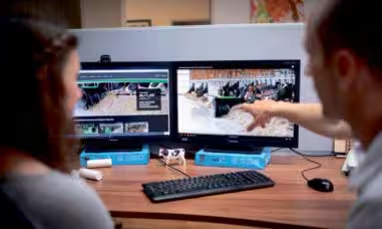
lot is happening in Austria as a business location: A yearbook full of domestic success stories told in exclusive interviews.
The hoped-for upswing for Austria's economy is still very lukewarm at the beginning of autumn; the sluggish economic development is lasting longer than forecast - especially in industry, construction and retail. At the end of June, Wifo and IHS had still expected stagnation (0.0 percent growth) of the domestic economy or a minimal increase of 0.3 percent in their quarterly economic forecast for 2024. At the beginning of October, they updated their forecast. With the eighth quarter in a row of stagnation or contraction, this is "the longest recessionary phase since the end of the Second World War," said Wifo head Gabriel Felbermayr recently at a panel discussion. One bright spot is the development of consumer price inflation in Austria, which fell to its lowest level since February 2021 in September 2024.
In demand: research and technological openness
It was not only in the run-up to the National Council elections that industry called for increased investment in research, technology and innovation (RTI) to ensure Austria's competitiveness. In the long term, it pays off. There are many examples to prove this. In recent years, Austria has established itself in the group of European "strong innovators". The goal formulated in the Austrian "RTI Strategy 2030" of catching up with the top group of "innovation leaders" (Denmark, Sweden, Finland, Netherlands) has not yet been achieved.
Land of Innovators
"Nevertheless, Austria is still considered an excellent RTI location, with very good development in recent years. This position must now be further strengthened and expanded in order to secure Austria's global competitiveness," said Georg Knill, President of the Federation of Austrian Industries, at the first Technology Talks Austria in Vienna. "In an environment of rising production costs, a shortage of skilled workers and geopolitical uncertainty, it is becoming increasingly important to invest in key technologies such as artificial intelligence, robotics, microelectronics and biotechnology." This is the only way to strengthen Austria as an innovation location and keep pace with global technology competition, stresses Knill.
The secret pioneers …
Austria is a country of innovators - but many shy away from the limelight. Family businesses are traditionally considered to be shy of publicity, and they focus on their core business - not on marketing and public relations. Many local start-ups and young entrepreneurs fight every day for economic survival - and a quick, expansive start abroad. The country of mountains and small and medium-sized companies is densely populated with companies that are leaders in Europe or worldwide despite often limited resources. Many of them are unknown.

Hidden Champions “guru” Georg Jungwirth has been researching the success factors and strategies of medium-sized Austrian global market leaders in the International Marketing & Sales Management course since 2007. “Every year, some of the Austrian Hidden Champions grow beyond
this (medium-sized) limit (€300 million turnover, note) and we then list them in our database as large, Austrian world market leaders such as Red Bull, Swarovski or Wienerberger," he says.
… and the young globalists
And every year new "champions" emerge, some of them as "born global companies" that operate internationally immediately after their launch. Jungwirth counts the factors for success as "high product quality, early internationalization, innovation - and a good working atmosphere in which employees feel comfortable and remain loyal to the company for years." Many operate in "super niches" or in areas where there is significantly less competition than on the mass markets. Family-run companies in particular pursue long-term strategies; they think "in generations."
We asked them for an in-depth interview for “World Champion Austria 2025 – The Yearbook on the Business Location”: the hidden champions, the European and world market leaders in the federal states, the family businesses, the innovative newcomers, the young stars in niche sectors, those who are continuously innovating and those who are moving into completely new niches – from Graz-based Allergosan, an international competence center for microbiome research, to the Viennese high-tech company TTTech, which recently supplied electronic components for the new European launch vehicle generation Ariane 6.
Interviews with the best in their industry "World Champion Austria" - author Alexander Haide asked them all: the captains of the major exporters, the managing directors of traditional medium-sized companies, the founders and leaders. What are their recipes for success, which strategies take them further?